In Search Of… The Perfect Holster
Tom McHale 09.19.18
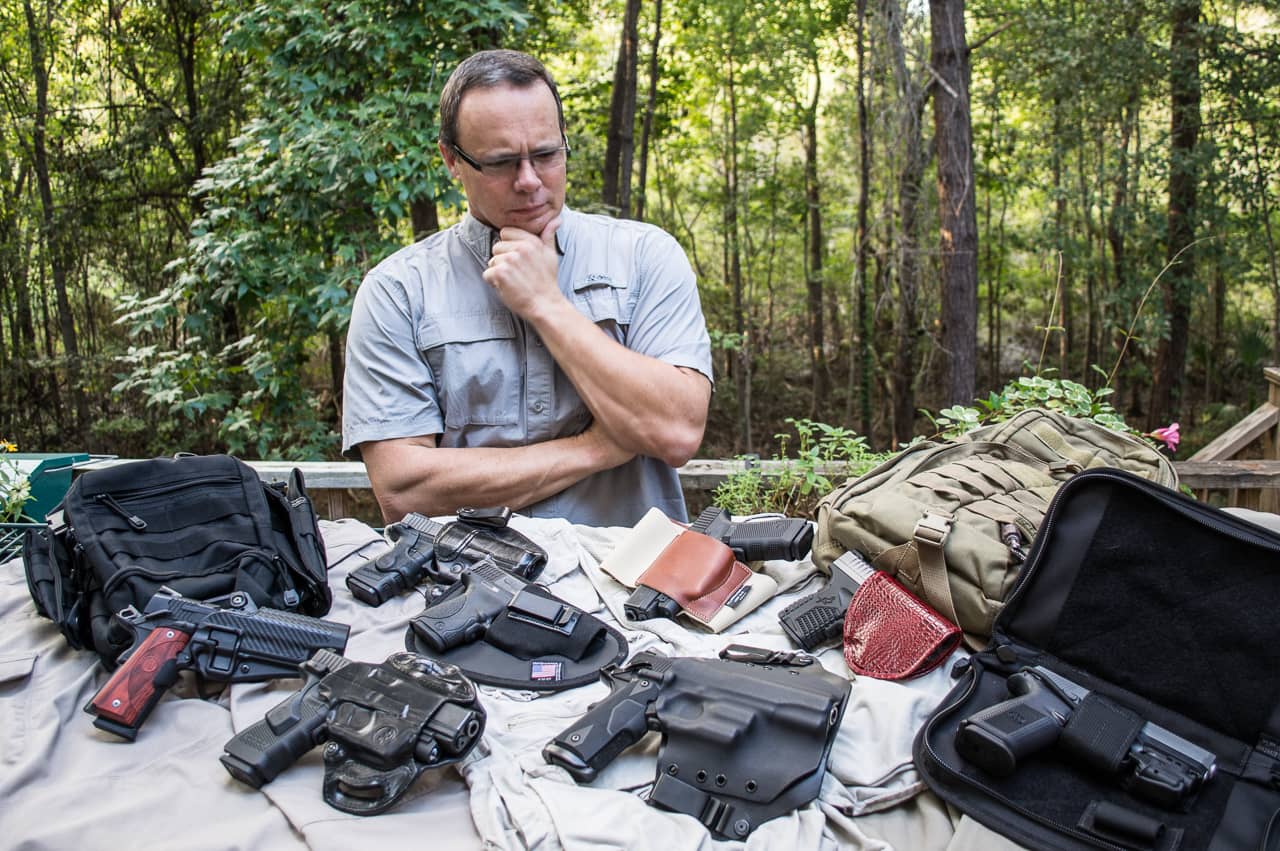
Everyone has their mission in life. Roald Amundsen felt compelled to find and reach the South Pole for before anyone else. Actor Tom Cruise spent decades pursuing his goal of becoming the undisputed Archduke of Crazy. I’ve got my cross to bear as well. My mission? Finding the perfect holster for concealed carry purposes.
I’ve spent a couple of decades on the job and have hundreds of discarded holsters to show for it. At the recommendation of my therapist, I even wrote a book about concealed carry holsters. Unfortunately, even if it outsells The 50 Shades of Grey, I’ll never recoup all the money spent on leather and Kydex gear.
Perfect Holster Theory…
On paper, one might expect a “perfect” holster to do many things.
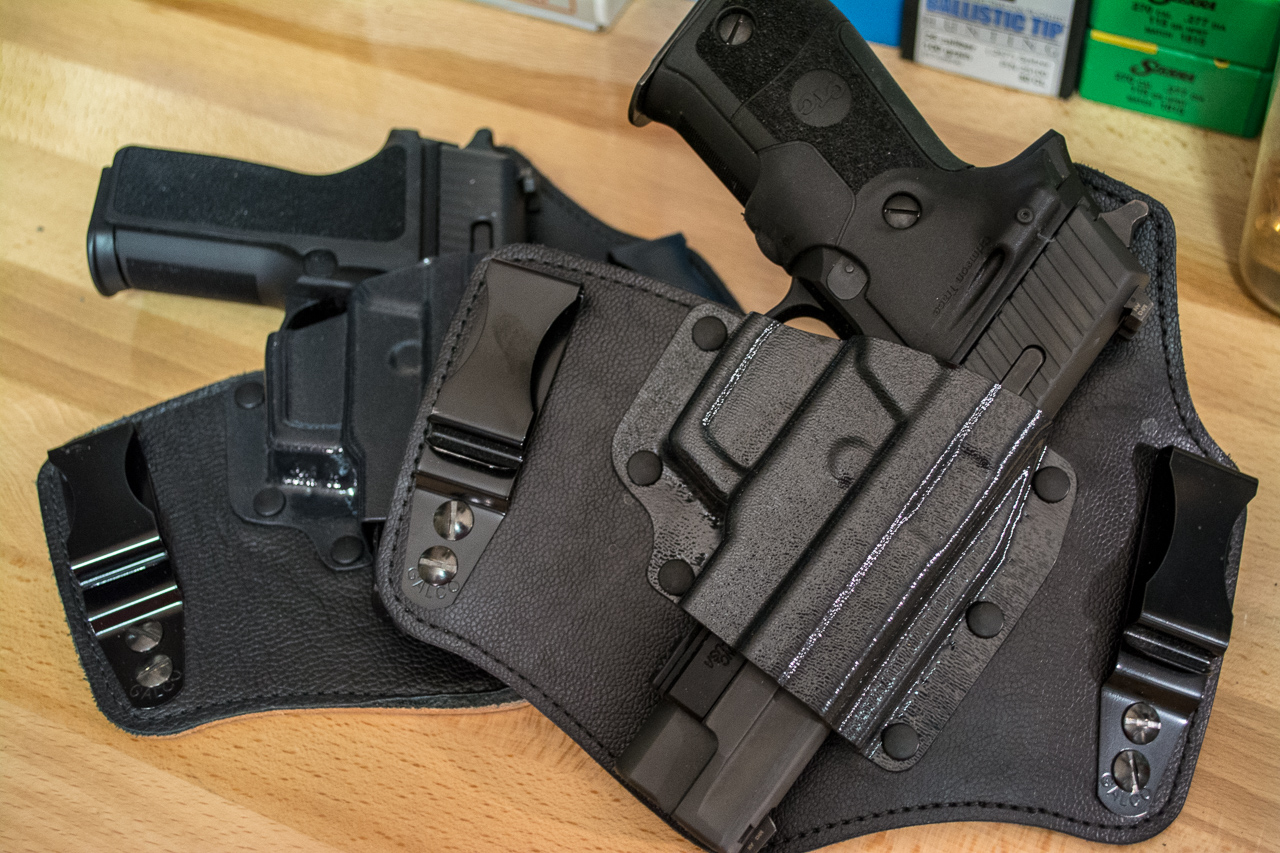
First and foremost, it should offer absolute concealment, even when wearing a two-sizes-too-small Speedo. It is supposed to be “concealed” carry, right? One should be able to not only go about their daily routine with a negative 117% chance of being outed, but also safety perform actions like walking, running, Prancercize, and all of those “great to see you, we’ll have to do lunch sometime” hugs.
A proper holster must also bend the laws of physics and reduce gun weight to a flat three ounces. It’s all about proper design. Through the use of space-age materials like Nytrillium Spandex Elastopolymers (not plastic!), holster makers cannot only redistribute gun weight but redirect most of the mass into the nearest black hole.
While related the previous point, a good holster should also make your butt look smaller and allow one to wear pants two sizes less than normal.
Sounds reasonable, right? Well, as it turns out, finding the perfect holster is not nearly as easy as charting your ideal career path with a quick call to the Psychic Hotline.
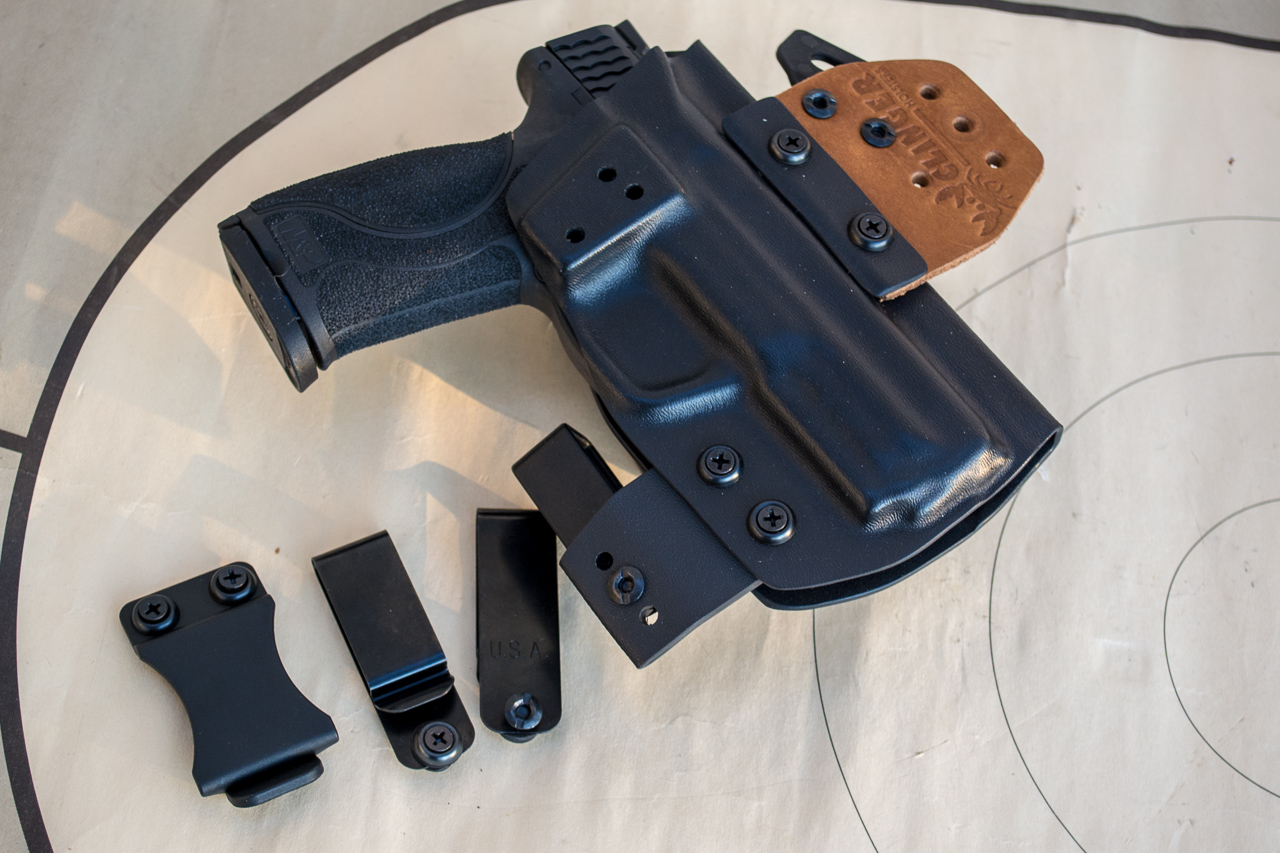
Theory vs. Reality
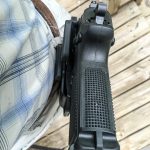
The first mistake I made in my young and foolish concealed carry journey was placing concealment at the top of the priority list. Focusing too much on concealment convenience tends to ignore more important things, like actually using your firearm to save your life.
Over the years I’ve tried all the systems (and sometimes gimmicks) that promised absolute concealment with an extra side of comfort. Crotch-carry gun sacks, inside the pants holsters disguised as pagers and phones, bands, wraps, and undershirts, ankle carry rigs, and even underwear with a built-in handgun pouch. Guess what? While some of them worked, none of them excelled at the primary mission of a holster: safely carrying a handgun in such a way that it was easily accessible during a chaotic life-threatening self-defense event.
You see, there’s a tradeoff at play. The deeper the concealment, the less likely that you’ll be able to bring your gun into action in less than an hour and a half without stripping down to your skivvies. It’s one of those “by definition” type of scenarios. If you store your fire extinguisher in a crate in the garage, so it doesn’t make your home look like a McDonalds kitchen, it’s not going to be handily accessible when your stir-fry SPAM Étouffée flares up.
The problem is that some of those ultra concealment methods show slick demos of how quickly and easily you can draw your gun, all while under carefully controlled ideal circumstances. Before deciding to trust your well-being to one of those systems, ask yourself some reality-check questions:
- Can you quickly draw your gun with just one hand? You might find yourself already in a physical altercation and without an extra hand to spare. You might be holding a child. You might be trying to call for help with your support hand. Don’t assume that you’ll have the luxury of time and use of both hands to draw your firearm in self-defense.
- Can you draw quickly and consistently from a seated position or while in a car? How about with the seatbelt fastened?
- If you have to run, will your holster keep your gun where it’s supposed to be? How about while wrestling on the ground?
- If you had to, could you access your gun with your support hand only?
I pose these types of questions because when starting to carry, we tend to assume that we’ll be able to spot impending trouble from a distance and have the luxury of time to draw a gun and deal with the situation. In reality, that’s a very rare occurrence indeed.
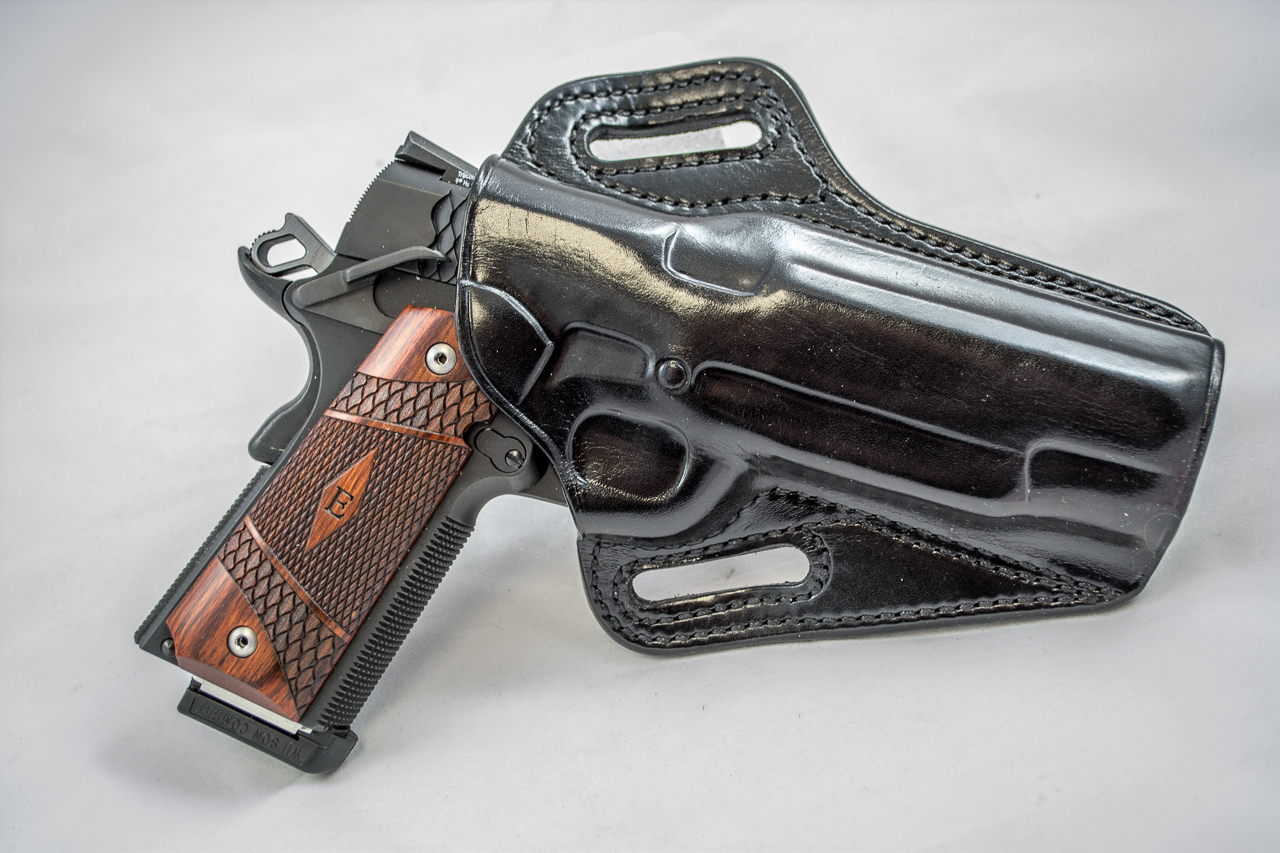
How much time are you going to have when the guy behind you at the Stop ‘N Rob whips out a gun and yells for everyone to hit the floor? Or when a dude passing you on the sidewalk turns around and sticks a gun in your back? You get the idea. Violent crime tends to be up close and personal, and by definition, you’re already behind the eight ball when it happens.
Reality Check: What a Holster Must Do
Here’s the bottom line. A perfect holster will inspire confidence because you’re certain that it’s going to perform when things get nasty. So what are those performance attributes? A confidence-inspiring holster does three things:
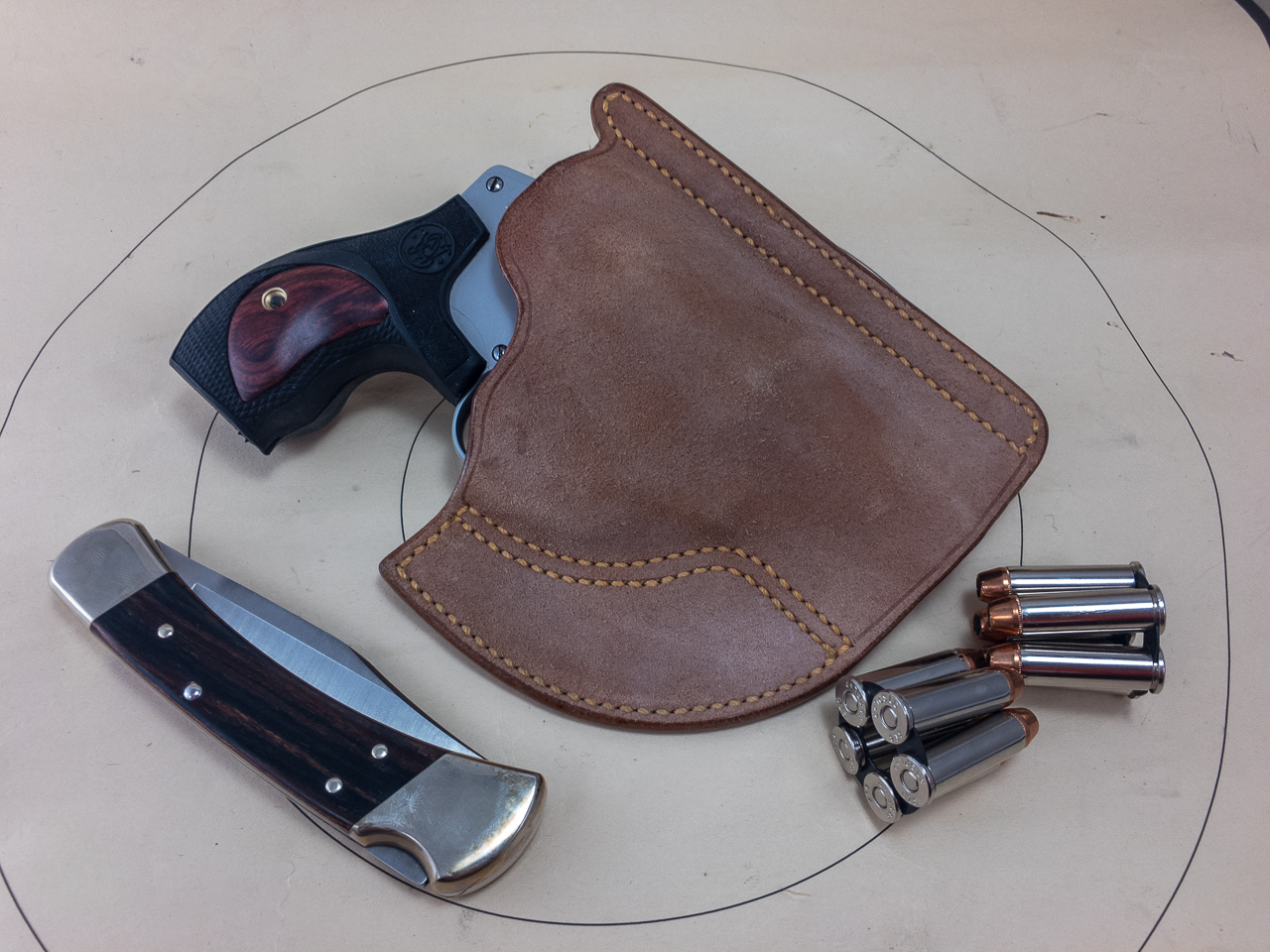
The perfect holster helps you access your gun quickly. Getting the gun into action during a self-defense encounter is much easier when your gun is supported in an optimal and stable position. If it’s not right where you expect and oriented consistently, all the practice in the world won’t prevent you from fumbling for your gun in a time of stress and commotion.
The perfect holster protects the trigger from you and your stuff. Whether scrambling to draw or being carried through your daily activity, a proper holster protects the trigger and prevents activation until you’re ready with a proper grip. Many things in your daily environment like car seats, keys, pocket junk, or seat belts can find their way into an unprotected trigger guard.
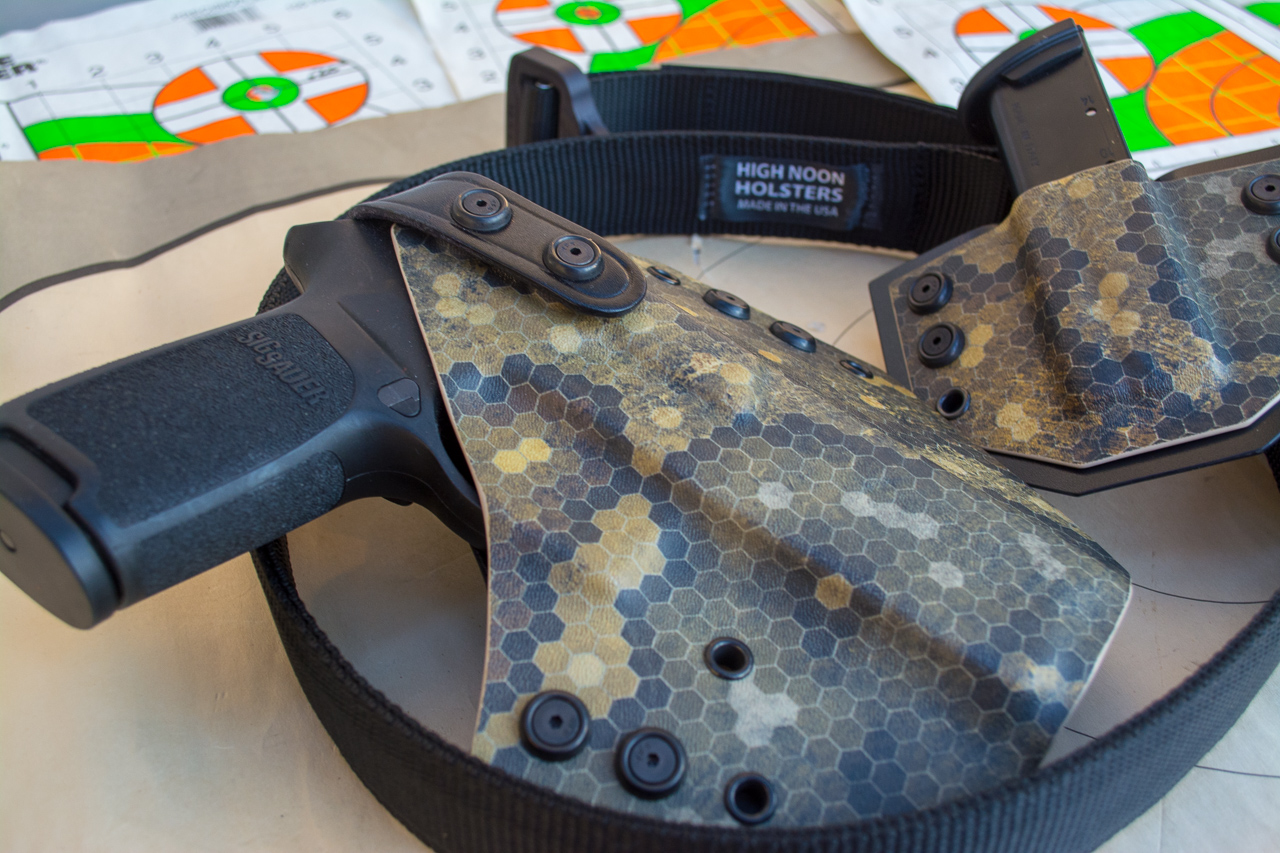
The perfect holster keeps your firearm under your direct control throughout all of our daily motions and activities. Whether sitting, standing, walking, running or whatever else it is that you do, a proper holster secures your gun until you decide that it’s time to remove it.
You’ll notice that none of the three holster requirements reference concealment. Yes, a carry holster needs to do that too, but concealment is as much a lifestyle and wardrobe responsibility as a holster function. You can dress around a good and safe holster to conceal your firearm, but your wardrobe choices won’t make up for holster security shortcomings.
So when you go to choose the “perfect” holster, think about its mission in terms of helping to save your life, not as a convenience decision.

